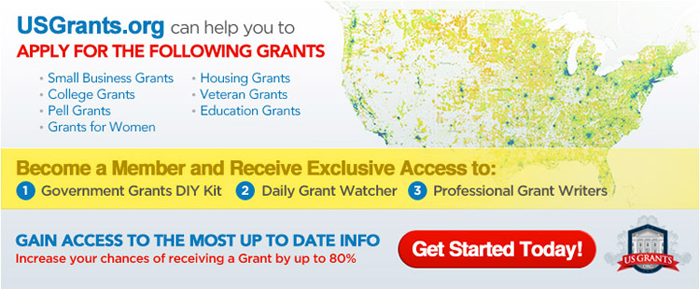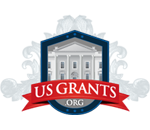Philadelphia Literacy Initiative - c/o Urban Affai | Application Preview
The Philadelphia Literacy Initiative (PLI) is seeking government grants to support its operations and growth. If funding is secured, it will be used for volunteer stipends, salaries, curriculum materials, and technology for data collection and recognition events. PLI, fiscally sponsored by the Urban Affairs Coalition, operates under its nonprofit status, allowing it to apply for diverse grants. Currently, it serves six public schools and over 300 students, but aims to expand its outreach to over 30 schools and 1,500 students in the next five years.
PLI benefits from the support of its fiscal sponsor, which provides stability and potential funding through government grants that span three years. Additionally, it plans to pursue bi-annual foundation and corporate grants and relies on service fees from schools to sustain its growth. The organization leverages the expertise of its staff and volunteers, most of whom come from the AARP Foundation Experience Corps, bringing decades of experience in tutoring and mentoring.
A key reason for funding approval is PLI's alignment with the School District of Philadelphia’s goal to improve third-grade reading proficiency. The district currently faces significant challenges, as a large percentage of students, particularly from economically disadvantaged backgrounds, struggle with literacy. PLI's model emphasizes recruiting volunteers aged 50 and older to provide one-on-one tutoring to K-3 students, directly addressing these academic gaps and potentially extending support into pre-K classrooms.
The competition includes other volunteer programs, but PLI stands out for its tailored approach to intergenerational tutoring and its established relationships with schools. The initiative promises to enhance reading skills among at-risk youth while offering meaningful volunteer opportunities for older adults, who are committed and well-trained. Overall, funding PLI is seen as a significant investment in the education and well-being of children and the community at large.
-
General Information
Business Registration Number: 23-7046393
Location: Ardmore, PA, United States
Length of Operation: 1-5
Number of Employees: 1-10 Employees
Annual Gross Income: Less than $100k
Annual Gross Expense: Less than $100k
Open to Loans: NO
-
Funding Usage
If awarded general operation funds, funds will be used to provide volunteer stipends, salaries, purchase curriculum materials, and technology to capture program data for reporting and volunteer recognition events. If funds are not GOS, they will target the proposed discretion.
-
Business Plan
PLI is currently fiscally sponsored by the Urban Affairs Coalition and falls under its 501(c)(3) nonprofit status, which enables us to request government, corporate, and foundation grants. In year one--the 2022-23 school year, PLI serves six public schools and 300+ students. PLI will increase the number of schools from six to 30+, volunteers from 50 to 200+, and students from 300 to 1,500+ who receive one-on-one tutoring over the next five years. The Urban Affairs Coalition (PLI's fiscal sponsor) is a robust support mechanism that can undergird stability and growth over the next five years. In addition to receiving government grants that cover three years (AmeriCorps, OJJDP, and state), PLI will seek foundation/corporate grants that support program growth and are bi-annual and renewable. Schools pay a fee for service, which will support growth and sustainability. PLI benefits from Accentuate ProBono, which will partner to facilitate program branding and marketing in 2023. As of 2022, all PLI staff and volunteers are formerly associated with AARP Foundation Experience Corps and bring two decades of intergenerational tutoring and mentoring management, skill, commitment, and networks to developing PLI. AARP Foundation closed its four branches, including Philadelphia, in 2022; schools, volunteers, and staff decided to continue supporting students striving for grade-level reading proficiency by forming PLI. One of the School District of Philadelphia's strategic goals/guardrails is that 62% of 3rd-grade students will be proficient on the state ELA assessment by August 2025. In August 2019, 32.5% of students were proficient. On average, Black/African American and Hispanic/Latino students have around 25% proficiency in reading, literacy, and language arts. PLI's predominant group of students includes this population- most of whom qualify as economically disadvantaged. The School District of Philadelphia provides preschool to approximately 9,500 four and five-year-old students and supports government-funded daycare centers in the city. The district's Office of Early Childhood Education met with PLI to request support by placing older adult volunteers in pre-K classrooms. PLI's model is to recruit, train, manage, and retain older adult volunteers aged 50+ and to place teams in schools that support teachers with one-on-one tutoring K-3 students striving for reading proficiency. Our intentions are similar to the District's -- improve academic outcomes that undergird a child's reading ability at grade level and above. The opportunity to move into the pre-K realm is the route to mitigating achievement gaps that may arise in the K-3 school years. Most PLI volunteers live in Philadelphia and are eager to "give back" to their community. Others travel to Philadelphia's public and charter schools because of early education success's importance in school achievement, graduation, and work and college readiness. PLI's volunteers are committed and well-trained, dedicating two to three days each week for three to five hours a day to support six or more students. PLI's model offers high-intensity and high-frequency support to Philadelphia's most vulnerable youth. An investment in PLI is an investment in children, families, the education system, and the well-being of its older citizens, who consistently find tremendous meaning in working with children.
-
Self Identified Competition
The School District of Philadelphia Office of Early Childhood Education sent a Request for Proposals in late 2021 with a submission deadline of March 2022. PLI's current staff completed that RFP under AARP Foundation Experience Corps, which was on the School Board Member's agenda in May to be authorized to allow Experience Corps to operate in 150 elementary schools. One week before the Board was to approve the program, AARP Foundation closed its four branches--Philadelphia, DC, Chicago, and Baltimore; and the District's offer had to be rescinded. Relative to competitors, AARP Foundation Experience Corps had 25+ years of experience in intergenerational tutoring--starting with Temple University and fusing with AARP in 2010. Aside from Foster Grandparents, Senior Volunteers, or City Year, most competitors did not provide the onsite volunteer management, training, and consistent and historical relationship that PLI staff and volunteers appreciated today. Program evaluation and even a formal District--Office of Research and Evaluation research study validated the benefits of intergenerational tutoring and mentoring. Programs are rising, but few garner the respect and support of PLI's volunteer school teams. PLI is a reading intervention program for children performing below grade level. It supports teachers and school administrators and provides meaning to the city's older adults who provide one-on-one and small group tutoring to 80,000+ hours per year. Older adults have the time and commitment, and most are retired and satisfied with receiving a stipend for their service. The school fee is nominal relative to City Year, for example. PLI recruits and trains volunteers and has an onsite supervisor for each school team which may consist of six to 12 volunteers. PLI uses Reading A-Z, a multi-level curriculum tool during 30-minute tutoring sessions, and it can utilize materials and directions provided by teachers. Volunteers are well prepared to help children learn to read and develop social-emotional learning skills. The K-3 teams focus on reading competency, not just reading a book to a student (however, they do read-aloud as a complement to skill building, so students hear what good reading sounds like). Preschool support will be as flexible as the classroom teacher needs, but volunteers will receive early literacy skill-building training.
-
Contact Applicant
Subscribe to our Administrator Dashboard to gain full access to this application. Learn More


